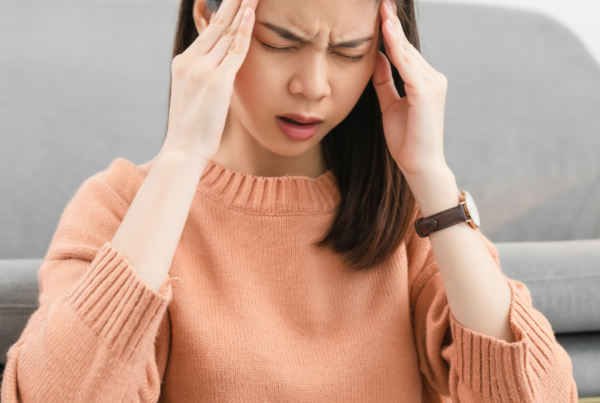
Vertigo is a set of symptoms, affecting a person’s equilibrium, that is most likely based on one of several underlying conditions, usually in the inner ear, but not always. The symptoms labeled vertigo include dizziness, nausea, inability to walk straight, sense of spinning, etc. They can last for just a few minutes, for a couple of hours, or even for several days. They can leave and come back again. Most people who experience vertigo, understandably, are looking for any way to avoid feeling these symptoms.
While many people have to deal with only this sensation of spinning (dizziness) during episodes, others struggle with additional symptoms including headaches, a racing pulse, sweating, ringing in the ears, vomiting, nausea, and jerky eye movements or blurred vision.
Medical Causes of Vertigo
Medically speaking, there are five main causes of vertigo: migraines or head injuries, inner ear issues or infections, benign paroxysmal positional vertigo (BPPV), vestibular neuritis and Labyrinthitis, and Meniere’s disease. All of them, except the migraines or head injuries involve the inner ear.
BPPV is a result of calcium that builds up in the inner ear canals, causing dizziness for just a brief amount of time, usually from 20 seconds to one minute. It can also be exacerbated by moving the head to certain positions or by trauma to the head. Doctor’s can walk you through exercises that sometimes can relieve or get rid of this type of vertigo.
Meniere’s disease is the condition in which the inner ear suffers from a build-up of pressure and fluid. This condition can also cause hearing loss and dizziness, along with ringing in the ears.
Vestibular neuritis results from an ear infection that causes inflammation around the body’s nerves that sense balance. It is often a severe bout that lasts a day or two, sometimes being accompanied by hearing loss and dizziness. Fortunately, 95% of people fully recover, and never experience it again. Labyrinthitis has similar causes and symptoms but also includes hearing loss.
Rarely, vertigo can be caused by multiple sclerosis, a neck injury, and brain problems like a tumor or a stroke.
Treatment
All medical causes of vertigo should be diagnosed under a physician’s care. Your doctor can help you find out what is causing your vertigo and recommend a course of action. It’s important to find out what is causing your vertigo so you can get relief as soon as possible and not make symptoms worse. However, there are several things other things you can do to make your Vertigo more manageable.
Avoiding Triggers and Finding Natural Relief
As for non-medical causes, the list of triggers of vertigo varies from one person to another – what may be a cause for one may have no effect on another. Some triggers to be aware of are as follows:
- Head movement
- Bending over
- Certain medications
- Anxiety
- Dehydration
- Sinus or viral infections
- Stress
- Fatigue
- Prolonged bed rest
- Migraines
- Foods with high sugar or high salt content
- Caffeine or alcohol
If you have started to notice that you may be experiencing symptoms that accompany vertigo, start to keep track of what you are doing each time your symptoms begin. This will help rule out and pinpoint various triggers of vertigo. While most bouts are nothing to be alarmed about, if your symptoms are debilitating and interfere with your day-to-day activities, they come on very frequently, or you’ve been suffering from symptoms for quite a while, be sure to contact your doctor. Also, learn from what you are finding. Try to avoid situations that trigger your vertigo whenever possible.
Getting plenty of fluids, rest, eating healthy, staying away from colds and inner ear infections when possible, and trying a few natural supplements can also help you find more relief. Natural supplements might include ginger for nausea, coriander seeds for dizziness and a topically applied natural essential oil formula called DiVertigo, working in just minutes to relieve symptoms.
Here’s to many more vertigo free days!





